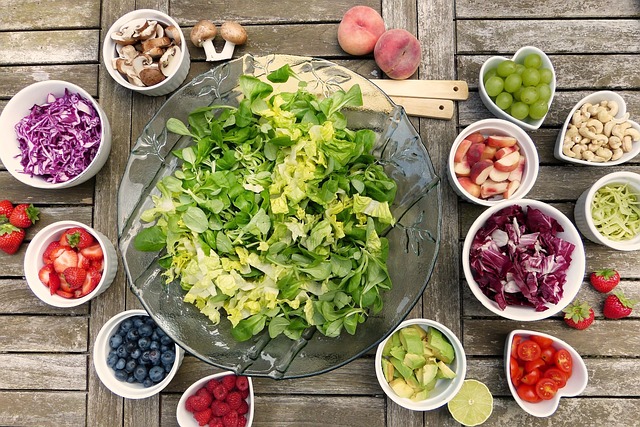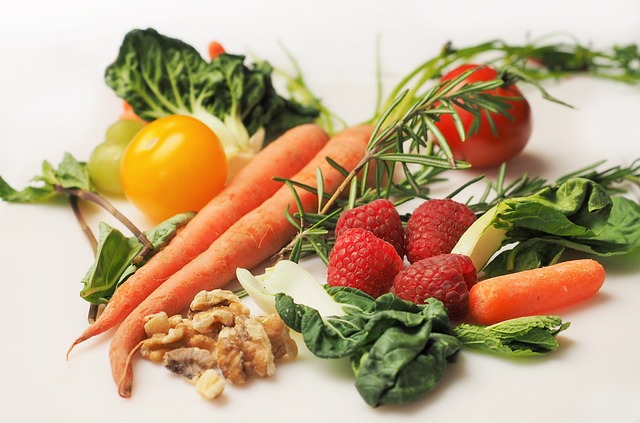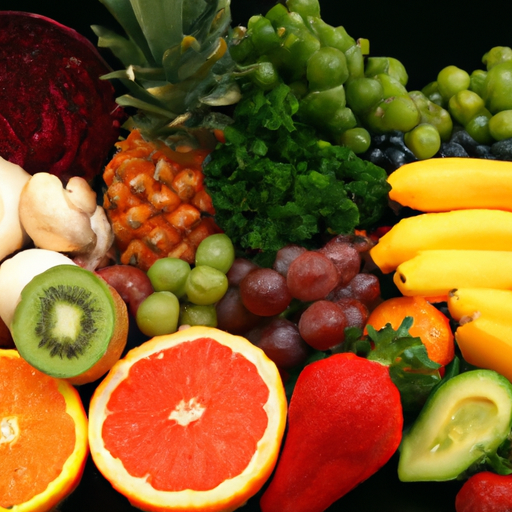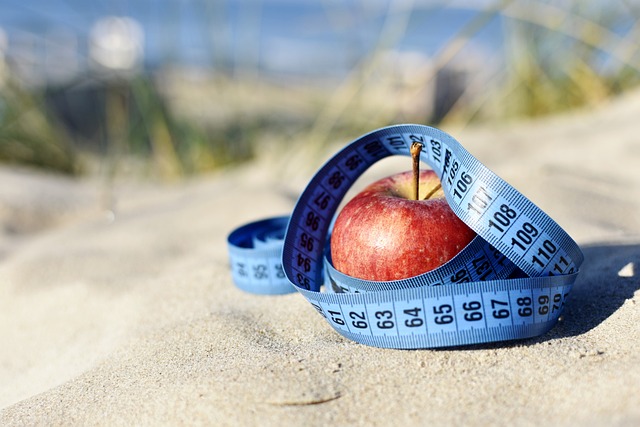When it comes to losing weight, many people wonder about the importance of diet. Well, let me tell you, your diet plays a significant role in your weight loss journey. You see, while exercise is important for overall health and fitness, it’s what you eat that has the biggest impact on your weight. In fact, studies have shown that weight loss is primarily driven by diet rather than exercise. So, if you’re looking to shed those extra pounds, it’s time to take a closer look at your eating habits.
Your diet is essentially the fuel that your body needs to function properly. The type and amount of food you consume directly affect your weight. If you consistently consume more calories than your body needs, you’ll start to gain weight. On the other hand, if you consume fewer calories than you burn, you’ll start to lose weight. It’s really that simple. So, if you’re serious about losing weight, you need to pay attention to what you’re putting into your body.
But it’s not just about the quantity of food; it’s also about the quality. Eating a well-balanced diet that includes a variety of nutrient-rich foods is crucial for weight loss. You need to focus on consuming whole grains, lean proteins, fruits, vegetables, and healthy fats. These foods are not only low in calories but also keep you feeling full for longer, reducing the chances of overeating. In contrast, highly processed and high-calorie foods can lead to weight gain and even sabotage your weight loss efforts. So, in order to achieve your weight loss goals, you’ll definitely need to make some changes to your diet.
So, now that you know the role diet plays in weight loss, you’re probably wondering how to make the right dietary choices. Well, don’t worry, I’ll cover that in more detail in the upcoming article. You’ll learn about different types of diets, portion control, and practical tips for incorporating healthier eating habits into your lifestyle. So, stay tuned because there’s a lot more to discover about the importance of diet in achieving your weight loss goals.

Understanding Weight Loss
Defining Weight Loss
Weight loss refers to the process of reducing body weight, primarily by losing excess fat. It is often associated with an overall improvement in health and well-being. Achieving weight loss requires creating an energy deficit, where the calories consumed are fewer than the calories expended. While various factors influence weight loss, the role of diet cannot be underestimated.
Factors Affecting Weight Loss
Weight loss is influenced by several factors, including genetics, age, sex, metabolism, and overall health. However, one of the most significant factors is diet. The types of foods you consume, the portion sizes, and the overall quality of your diet play a crucial role in determining the success of your weight loss journey.
Importance of Diet in Weight Loss
Diet plays a pivotal role in weight loss because it directly impacts your calorie intake and nutrient consumption. By making conscious choices about the foods you eat, you can create a calorie deficit, which is essential for shedding those unwanted pounds. A well-balanced diet also ensures that your body receives the necessary nutrients for optimal functioning while promoting fat loss.
Principles of a Healthy Diet
Balanced Macronutrient Intake
A healthy diet focuses on consuming a balanced mix of macronutrients – carbohydrates, proteins, and fats. Carbohydrates provide energy, proteins support muscle growth and repair, and fats help with nutrient absorption and hormone regulation. By consuming a combination of these macronutrients in the right proportions, you can support weight loss while maintaining overall health.
Portion Control
Portion control is crucial when it comes to weight loss. It involves eating moderate-sized servings while being mindful of your body’s hunger and fullness cues. By controlling portion sizes, you can prevent overeating and manage your calorie intake effectively. A useful tip is to use smaller plates and bowls to visually trick your mind into thinking you’re consuming more food.
Incorporating Whole Foods
Whole foods, such as fruits, vegetables, whole grains, lean proteins, and healthy fats, should form the foundation of your weight loss diet. These foods are rich in essential nutrients, fiber, and antioxidants, while also being lower in calories compared to processed foods. By incorporating more whole foods into your meals, you can ensure optimal nutrition and weight loss.
Avoiding Processed Foods
Processed foods, including sugary snacks, refined grains, fast food, and sugary beverages, should be limited or avoided in a weight loss diet. These foods are often high in calories, unhealthy fats, added sugars, and artificial additives. By cutting back on processed foods, you can reduce your calorie intake, improve your overall health, and promote weight loss.
Hydration and Weight Loss
Staying hydrated is often overlooked but is crucial for weight loss. Water not only helps quench your thirst but also aids in digestion, metabolism, and appetite control. Additionally, drinking water before meals can help reduce calorie intake by promoting a feeling of fullness. Aim to drink at least eight glasses of water per day to support your weight loss efforts.

Types of Diets for Weight Loss
Low-Calorie Diets
Low-calorie diets involve restricting calorie intake to create a calorie deficit. These diets typically recommend consuming fewer than 1,200 calories per day and can lead to significant weight loss. However, it’s important to ensure that you still meet your nutrient needs and consult a healthcare professional before starting such a diet.
Low-Carb Diets
Low-carb diets, such as the ketogenic or Atkins diet, focus on reducing carbohydrate intake and increasing protein and fat consumption. By restricting carbohydrates, the body is forced to burn stored fat for energy, leading to weight loss. These diets can be effective in the short-term, but long-term sustainability and potential health risks should be considered.
Intermittent Fasting
Intermittent fasting involves alternating periods of fasting and eating. The most common approach is the 16/8 method, where you fast for 16 hours and have an 8-hour eating window. This approach can help restrict calorie intake and promote weight loss, while also offering other potential health benefits. However, it may not be suitable for everyone, so consult with a healthcare professional before starting.
Ketogenic Diet
The ketogenic diet is a very low-carb, high-fat diet that aims to put the body into a state of ketosis, where it primarily burns fat for fuel. This diet has gained popularity for its potential to promote weight loss and improve certain health conditions. However, it requires careful planning and monitoring to ensure you meet your nutritional needs.
Plant-Based Diets
Plant-based diets, such as vegetarian or vegan diets, promote weight loss by emphasizing fruits, vegetables, whole grains, legumes, and plant-based proteins. These diets are typically lower in calories and saturated fats while being rich in fiber and antioxidants. Plant-based diets can be effective for weight loss while providing numerous health benefits, but it’s essential to ensure adequate nutrient intake.
Effect of Diet on Metabolism
Thermic Effect of Food
The thermic effect of food refers to the energy required to digest, absorb, and process the nutrients from the foods you consume. Certain foods, such as protein-rich foods, have a higher thermic effect, meaning they require more energy to be metabolized. By incorporating protein into your diet, you can increase your metabolic rate and support weight loss.
Metabolic Adaptation
When you restrict calorie intake, your body may adapt by slowing down your metabolism to conserve energy. This metabolic adaptation can make weight loss more challenging over time. However, by focusing on nutrient-dense foods, eating enough calories to support your activity level, and gradually reducing calorie intake, you can mitigate this effect and continue to lose weight efficiently.
Glycemic Impact
The glycemic impact of food refers to how quickly and significantly a particular food raises blood sugar levels. Consuming foods with a high glycemic index can lead to rapid spikes in blood sugar, followed by crashes, which can trigger hunger and cravings. By choosing low-glycemic foods, such as whole grains, fruits, and vegetables, you can stabilize blood sugar levels, prevent cravings, and support weight loss.
Effect on Hormones
Diet plays a crucial role in regulating hormones involved in appetite control and metabolism. For example, high-protein diets can increase levels of hormones that suppress appetite, helping you feel fuller for longer. Additionally, reducing the intake of sugary and processed foods can improve insulin sensitivity and prevent insulin spikes, which can contribute to weight gain.
Muscle Preservation
When losing weight, it’s important to preserve muscle mass as much as possible. A diet rich in high-quality protein, including lean meats, fish, eggs, dairy products, and plant-based proteins, can ensure adequate protein intake for muscle maintenance. Regular resistance training exercises also help preserve muscle mass during weight loss.

Role of Diet in Energy Balance
Calorie Intake vs. Calorie Expenditure
Weight loss occurs when you consume fewer calories than you burn, creating a calorie deficit. While physical activity and exercise play a role in calorie expenditure, diet is the primary driver of calorie intake. By choosing foods that are lower in calories but high in nutrients, you can create a calorie deficit and support weight loss.
Calorie Deficit for Weight Loss
To lose weight, you need to create a calorie deficit of approximately 500-1000 calories per day, as this can lead to a safe and sustainable weight loss of 1-2 pounds per week. This can be achieved through a combination of reducing calorie intake and increasing physical activity. However, it’s important not to excessively restrict calories or engage in extreme methods, as this can be detrimental to your health.
Effects of Dietary Choices on Energy Balance
The types of foods you choose to include in your diet can significantly impact energy balance. For example, foods high in added sugars and unhealthy fats are often calorie-dense but nutrient-poor, leading to excessive calorie intake without fulfilling nutrient needs. On the other hand, foods that are low in calories but high in fiber and nutrients, such as fruits and vegetables, support weight loss while providing essential nutrients.
Importance of Nutrient Density
Essential Nutrients
Nutrient density refers to the concentration of essential nutrients in a given food. Consuming nutrient-dense foods ensures that your body receives the necessary vitamins, minerals, and other compounds it needs to function optimally. By focusing on nutrient-dense foods, you can support weight loss while maintaining overall health.
Vitamins and Minerals
Vitamins and minerals play crucial roles in various bodily functions, including metabolism, energy production, and immune function. When following a weight loss diet, it’s important to ensure you’re getting an adequate intake of essential vitamins and minerals. This can be achieved by consuming a diverse range of fruits, vegetables, whole grains, lean proteins, and healthy fats.
Fiber and Satiety
Fiber is a type of carbohydrate that is not digested by the body. It adds bulk to your diet, helps regulate blood sugar levels, promotes digestive health, and contributes to a feeling of fullness. By including high-fiber foods, such as whole grains, fruits, vegetables, and legumes, in your diet, you can increase satiety and promote weight loss.
Micronutrients and Weight Management
Micronutrients, such as antioxidants, phytochemicals, and trace minerals, are essential for maintaining optimal health. These compounds can support weight loss by promoting cellular function, reducing inflammation, supporting metabolic processes, and protecting against oxidative stress. Including a variety of fruits, vegetables, herbs, and spices in your diet can ensure an adequate intake of these essential micronutrients.

Psychological Aspects of Dieting
Mindful Eating
Mindful eating involves paying attention to the present moment while eating, without judgment. It involves being aware of your physical sensations, thoughts, and emotions related to food. This practice can help you make conscious food choices, recognize true hunger and fullness cues, and prevent overeating due to emotional or external triggers.
Emotional Eating
Emotional eating refers to using food as a means to cope with emotions, such as stress, sadness, or boredom. This can lead to overeating and hinder weight loss efforts. Strategies to manage emotional eating include finding alternative coping mechanisms, practicing stress reduction techniques, seeking support from loved ones, and addressing underlying emotional issues.
Food Cravings
Food cravings are intense desires for specific foods, often high in sugar, fat, or salt. They can be triggered by various factors, including emotional or physical states, environmental cues, or nutrient deficiencies. Strategies to manage food cravings include identifying triggers, finding healthier alternatives, distracting yourself with other activities, and practicing self-compassion.
Positive Reinforcement
Positive reinforcement involves rewarding yourself for achieving small milestones in your weight loss journey. This can help boost motivation and make the process more enjoyable. Examples of positive reinforcement include treating yourself to a non-food reward, celebrating progress with loved ones, or acknowledging your efforts through self-reflection or journaling.
Long-Term Success and Maintenance
Sustainable Lifestyle Changes
Long-term weight loss success requires adopting sustainable lifestyle changes rather than relying on short-term diets. This includes embracing a balanced and varied diet, regular physical activity, adequate sleep, stress management, and other healthy habits. By making gradual and sustainable changes, you can achieve lasting weight loss and improved overall health.
Building Healthy Habits
Creating healthy habits takes time and consistency. It involves establishing routines and behaviors that support your weight loss goals. Examples include meal prepping, planning physical activity, practicing portion control, incorporating mindful eating, and prioritizing self-care. By focusing on building healthy habits, you can make weight loss a natural part of your lifestyle.
Behavioral Strategies
Behavioral strategies can help address underlying habits, thoughts, and emotions related to food and eating. These strategies may include setting specific goals, tracking progress, identifying triggers and barriers, planning for potential obstacles, practicing self-monitoring, and seeking support from healthcare professionals or support groups. Behavioral changes are crucial for sustainable weight loss and long-term maintenance.
Regular Physical Activity
Physical activity is an essential component of a weight loss journey. It not only helps burn calories but also improves cardiovascular health, builds muscle, boosts mood, and enhances overall well-being. Aim for at least 150 minutes of moderate-intensity aerobic activity or 75 minutes of vigorous-intensity aerobic activity per week, along with strength training exercises at least twice a week.

Dietary Support and Guidance
Consulting a Registered Dietitian
If you’re struggling with weight loss or have specific dietary needs, consulting a registered dietitian can provide personalized guidance and support. They can assess your nutritional needs, recommend appropriate dietary changes, help you set realistic goals, and provide ongoing counseling and monitoring.
Online Resources and Apps
Numerous online resources and mobile apps are available to support your weight loss journey. These resources can provide meal planning ideas, calorie tracking tools, recipe inspiration, physical activity recommendations, and educational materials. However, it’s important to choose reputable sources and tailor the information to your individual needs.
Community Support
Joining a weight loss support group or participating in community programs can offer valuable social support and accountability. These groups provide a platform to share experiences, exchange tips, and seek encouragement from others who may be on a similar journey. Surrounding yourself with like-minded individuals can boost motivation and improve overall adherence to a healthy lifestyle.
Monitoring Progress
Tracking your progress is essential for staying motivated and assessing the effectiveness of your weight loss efforts. This can be done through regular weigh-ins, body measurements, or keeping a food and exercise journal. Tracking allows you to identify patterns, make adjustments when necessary, and celebrate milestones along the way.
Conclusion
In conclusion, diet plays a crucial role in weight loss. By creating a calorie deficit, consuming a balanced and nutrient-dense diet, and making sustainable lifestyle changes, you can achieve your weight loss goals. Understanding the impact of diet on metabolism, energy balance, and psychological aspects of dieting can further enhance your success. Remember, weight loss is a journey that requires patience, commitment, and a personalized approach. By combining a healthy diet with regular physical activity and seeking professional support, you can embark on a journey towards improved health and well-being.



